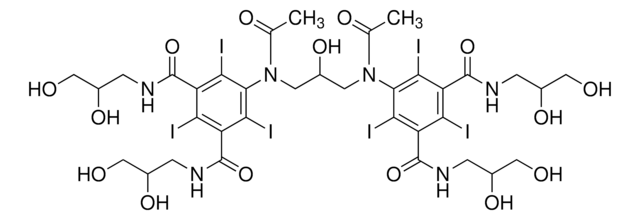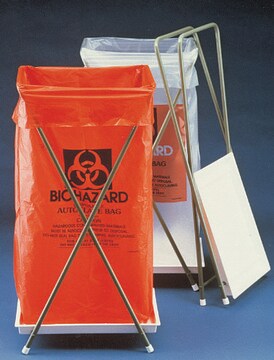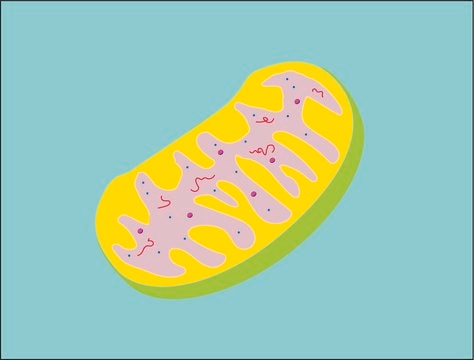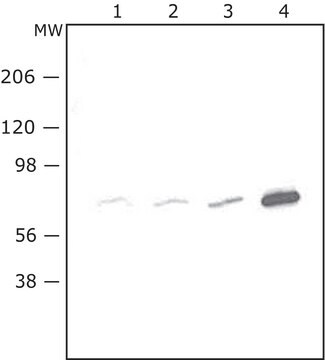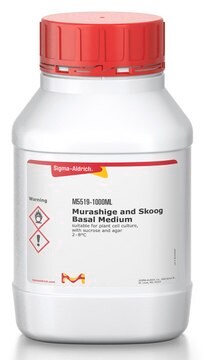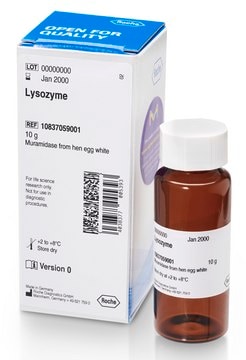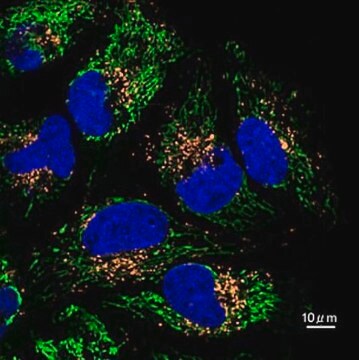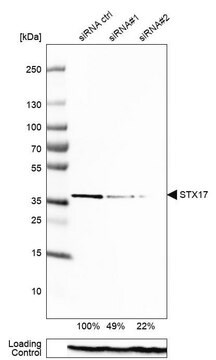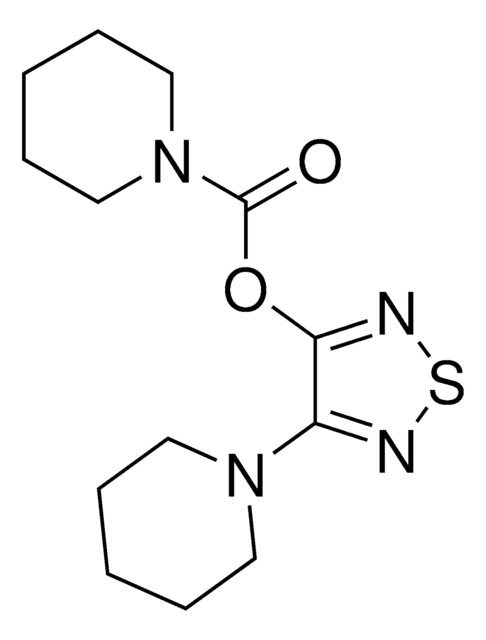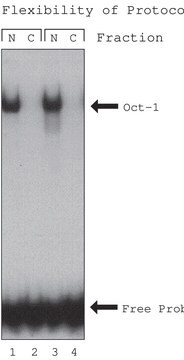LYSISO1
Lysosome Isolation Kit
sufficient for 25 g (tissue), sufficient for 20 mL (packed cells), enrichment of lysosomes from tissues and packed cells
About This Item
Prodotti consigliati
Livello qualitativo
impiego
sufficient for 20 mL (packed cells)
sufficient for 25 g (tissue)
tecniche
centrifugation: suitable
fractionation: suitable
Temperatura di conservazione
2-8°C
Descrizione generale
Applicazioni
- in the isolation of cytosol and lysosome
- to obtain enriched light and heavy lysosomal fractions from cultured cells
- in the isolation of lysosomes of mouse bone marrow macrophages (BMMs)
- in lysosome purification
The Lysosome Isolation Kit provides a method for isolating lysosomes from animal tissues and from cultured cells by differential centrifugation followed by density gradient centrifugation and/or calcium precipitation. The presence of lysosomes can be measured by assaying the activity of the lysosomal marker Acid Phosphatase, with the Acid Phosphatase Assay Kit (Cat. No. CS0740). Separation from other organelles can be measured using the appropriate marker detection kits available from Sigma.
Caratteristiche e vantaggi
- Generates functional organelles for metabolism and disease research
- Includes protease inhibitor to manage degradation
- Measures integrity with included Neutral Red dye
- Choose from multiple options to obtain enriched fractions
- Enriched fractions for intact and functional lysosomes from tissues and cells
- Suitable for functional studies including protein degradation
I componenti del kit sono disponibili anche separatamente
- P8340Protease Inhibitor Cocktail, for use with mammalian cell and tissue extracts, DMSO solution 5 mLSDS
Applicazioni
Avvertenze
Warning
Indicazioni di pericolo
Consigli di prudenza
Classi di pericolo
Eye Irrit. 2 - Skin Irrit. 2
Codice della classe di stoccaggio
10 - Combustible liquids
Punto d’infiammabilità (°F)
188.6 °F
Punto d’infiammabilità (°C)
87 °C
Certificati d'analisi (COA)
Cerca il Certificati d'analisi (COA) digitando il numero di lotto/batch corrispondente. I numeri di lotto o di batch sono stampati sull'etichetta dei prodotti dopo la parola ‘Lotto’ o ‘Batch’.
Possiedi già questo prodotto?
I documenti relativi ai prodotti acquistati recentemente sono disponibili nell’Archivio dei documenti.
I clienti hanno visto anche
Articoli
The isolation of subcellular fractions by centrifugation is a commonly used technique and is widely applicable across multiple cell and tissue types. Because organelles differ in their size, shape, and density, centrifugation can be easily employed to separate and purify organelle fractions from gently homogenized samples.
Il team dei nostri ricercatori vanta grande esperienza in tutte le aree della ricerca quali Life Science, scienza dei materiali, sintesi chimica, cromatografia, discipline analitiche, ecc..
Contatta l'Assistenza Tecnica.
